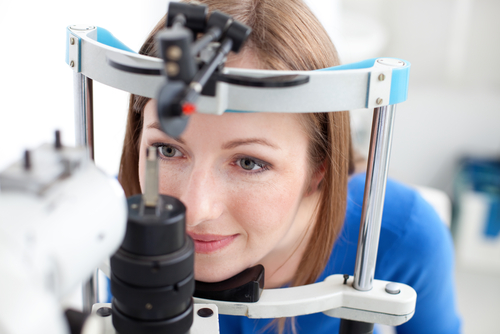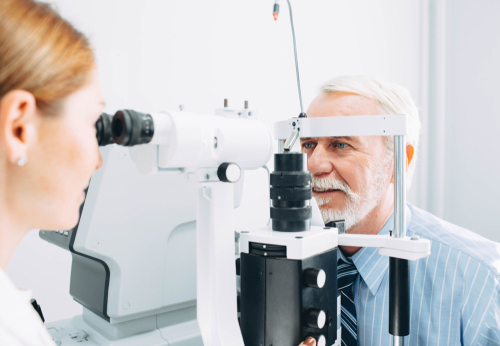this is a sponsored guest post.
Visiting an eye doctor for the first time can be overwhelming. Whether you are going to see the eye doctor for a regular eye checkup or because you think there’s something wrong with your eyes, it’s crucial to know what to expect before visiting the doctor. If you need an eye specialist, click here to find one.

Here are some things you should know before visiting your eye doctor in Port Charlotte:
What to Expect
Perhaps you’ve been recommended to visit an eye doctor after a vision screening provided by a wellness center or your local clinic. However, you should note that vision screenings provided by a general physician, public schools, health clinics, and charitable organizations should not be considered as a substitute for complete eye exams.

Before the Exam
- If you are going for a regular checkup, expect to talk about changes in your medical history since your last visit with the eye doctor.
- If this is your first eye checkup, then you will be asked to provide a medical history, including medications that you are presently taking, as well as vision problems that your parents may be suffering with.
- If you are wearing prescription glasses, you should bring these along to the consultation for evaluation by the eye doctor.
- If you need assistance, do not hesitate to request the staff in the office to help you go around the room or if you need to go to the restroom.
- If you believe that your vision or eyes are in an emergency, do not hesitate to seek urgent medical treatment.
During the Exam
- During the eye examination, you will be asked to undergo several vision screenings and other vision tests to help check your eye health and the current quality of your vision. The tests will also help determine if your existing prescription contacts or glasses are adequate for your vision needs.
- The eye specialist will also detect any symptoms of potential eye diseases or vision problems.
- Generally, an eye exam will last for an hour or so, depending on the number of eye tests required for your condition. Your health insurance plan may partially or totally cover these tests.
- If you are seeing the doctor because of discomfort, eye pain, suspected eye conditions, or other injuries, expect to take several tests in a comprehensive eye exam together.
- Other tests may be needed specific to the signs or disease you’re having.
- There could be several additional tests required and when you are in pain or are uncomfortable, you should allow as much time as possible for the eye exam.
After the Exam
- After the consultation, ask the doctor for an estimated timeline for your condition to improve, and what to expect.
- After the checkup, the doctor will discuss with you the present condition of your vision and eye health. They will also prescribe vision correction such as contact lenses or eyeglasses, if applicable.
- Should the doctor find any health concerns or severe potential eye complications, these things will also be discussed with you. The eye doctor should tell you about the best steps to take to protect and preserve your eyesight.
- You should ask the eye doctor to discuss your eyes’ condition and what the test results mean. This way, they can talk about the implications of the findings to your eye health.
Things to Remember
A lot of vision problems and eye diseases do not show any symptoms at their early stages. Therefore, it’s crucial to have regular appointments with your eye doctor. Also, because vision can change with age, it’s essential to have your vision checked each year.
Here are some things to do before your next eye doctor consultation:
- List your current medications and know about your medical history.
- If you are experiencing certain symptoms, be sure to describe them carefully and, if you need to, write them down.
- You should know about your family history, especially about eye diseases such as cataracts and glaucoma because these diseases are hereditary.
- Inquire about a vision insurance plan and if there are other necessary fees to expect for the exam.
- Don’t forget to bring along your identification insurance card and method of payment if applicable.
- Don’t forget your current prescription contact lenses or glasses.
- Bring along all corrective eyewear that you are presently using.
- If you will undergo a dilation exam, be sure to take along appropriate eye protection such as sunglasses to use after the appointment.
- Remember that an eye specialist is someone to help you protect and take care of your vision.
Final Thoughts
Eye doctors have the expertise, information, and examination and treatment tools needed to help maintain your eye health and perfect vision. For this reason, it is best to come prepared for the eye consultation and your eye exam. Whether you need a new pair of glasses or not, it is always a good idea to have your eyes checked regularly.



